Yelim Yu
Pacer and Runner: Cooperative Learning Framework between Single- and Cross-Domain Sequential Recommendation
Jul 15, 2024
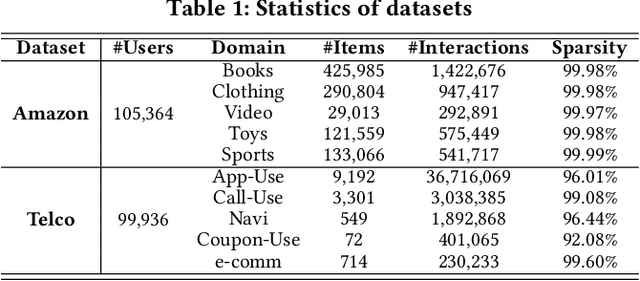
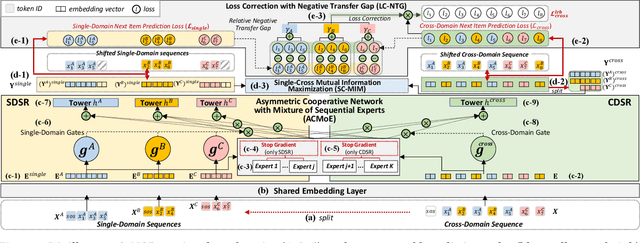
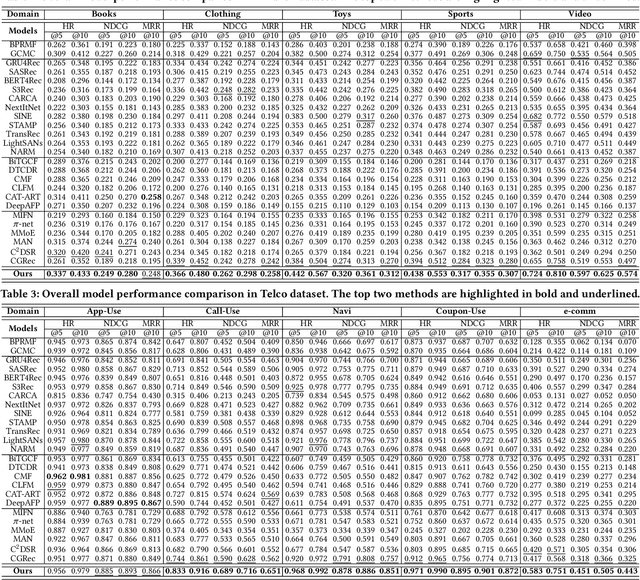
Abstract:Cross-Domain Sequential Recommendation (CDSR) improves recommendation performance by utilizing information from multiple domains, which contrasts with Single-Domain Sequential Recommendation (SDSR) that relies on a historical interaction within a specific domain. However, CDSR may underperform compared to the SDSR approach in certain domains due to negative transfer, which occurs when there is a lack of relation between domains or different levels of data sparsity. To address the issue of negative transfer, our proposed CDSR model estimates the degree of negative transfer of each domain and adaptively assigns it as a weight factor to the prediction loss, to control gradient flows through domains with significant negative transfer. To this end, our model compares the performance of a model trained on multiple domains (CDSR) with a model trained solely on the specific domain (SDSR) to evaluate the negative transfer of each domain using our asymmetric cooperative network. In addition, to facilitate the transfer of valuable cues between the SDSR and CDSR tasks, we developed an auxiliary loss that maximizes the mutual information between the representation pairs from both tasks on a per-domain basis. This cooperative learning between SDSR and CDSR tasks is similar to the collaborative dynamics between pacers and runners in a marathon. Our model outperformed numerous previous works in extensive experiments on two real-world industrial datasets across ten service domains. We also have deployed our model in the recommendation system of our personal assistant app service, resulting in 21.4% increase in click-through rate compared to existing models, which is valuable to real-world business.
Cracking the Code of Negative Transfer: A Cooperative Game Theoretic Approach for Cross-Domain Sequential Recommendation
Nov 22, 2023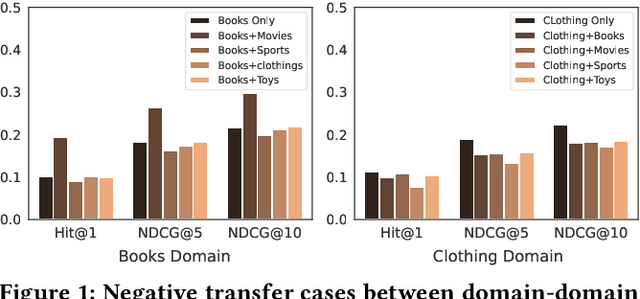
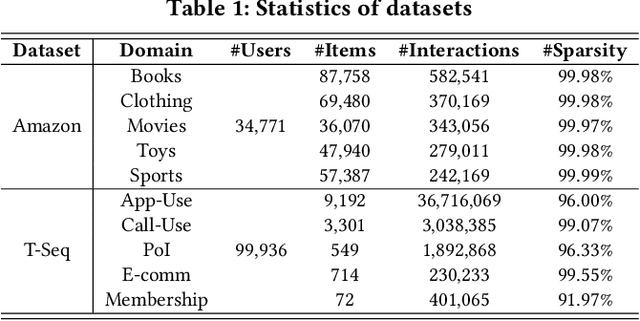
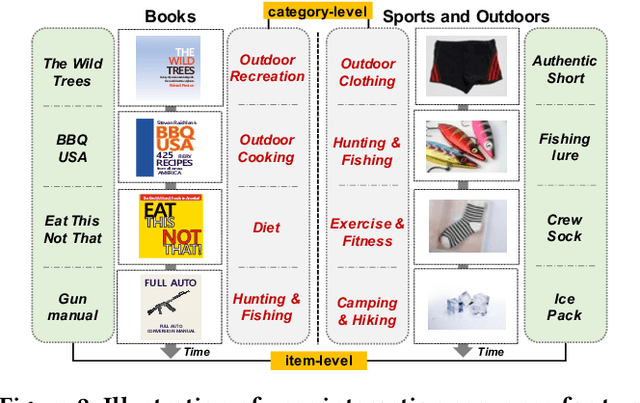
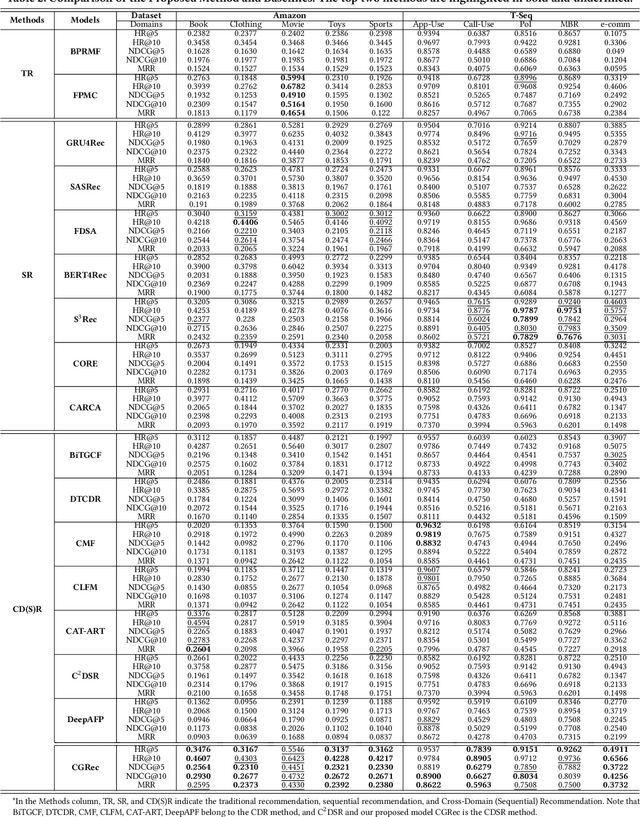
Abstract:This paper investigates Cross-Domain Sequential Recommendation (CDSR), a promising method that uses information from multiple domains (more than three) to generate accurate and diverse recommendations, and takes into account the sequential nature of user interactions. The effectiveness of these systems often depends on the complex interplay among the multiple domains. In this dynamic landscape, the problem of negative transfer arises, where heterogeneous knowledge between dissimilar domains leads to performance degradation due to differences in user preferences across these domains. As a remedy, we propose a new CDSR framework that addresses the problem of negative transfer by assessing the extent of negative transfer from one domain to another and adaptively assigning low weight values to the corresponding prediction losses. To this end, the amount of negative transfer is estimated by measuring the marginal contribution of each domain to model performance based on a cooperative game theory. In addition, a hierarchical contrastive learning approach that incorporates information from the sequence of coarse-level categories into that of fine-level categories (e.g., item level) when implementing contrastive learning was developed to mitigate negative transfer. Despite the potentially low relevance between domains at the fine-level, there may be higher relevance at the category level due to its generalised and broader preferences. We show that our model is superior to prior works in terms of model performance on two real-world datasets across ten different domains.
 Add to Chrome
Add to Chrome Add to Firefox
Add to Firefox Add to Edge
Add to Edge